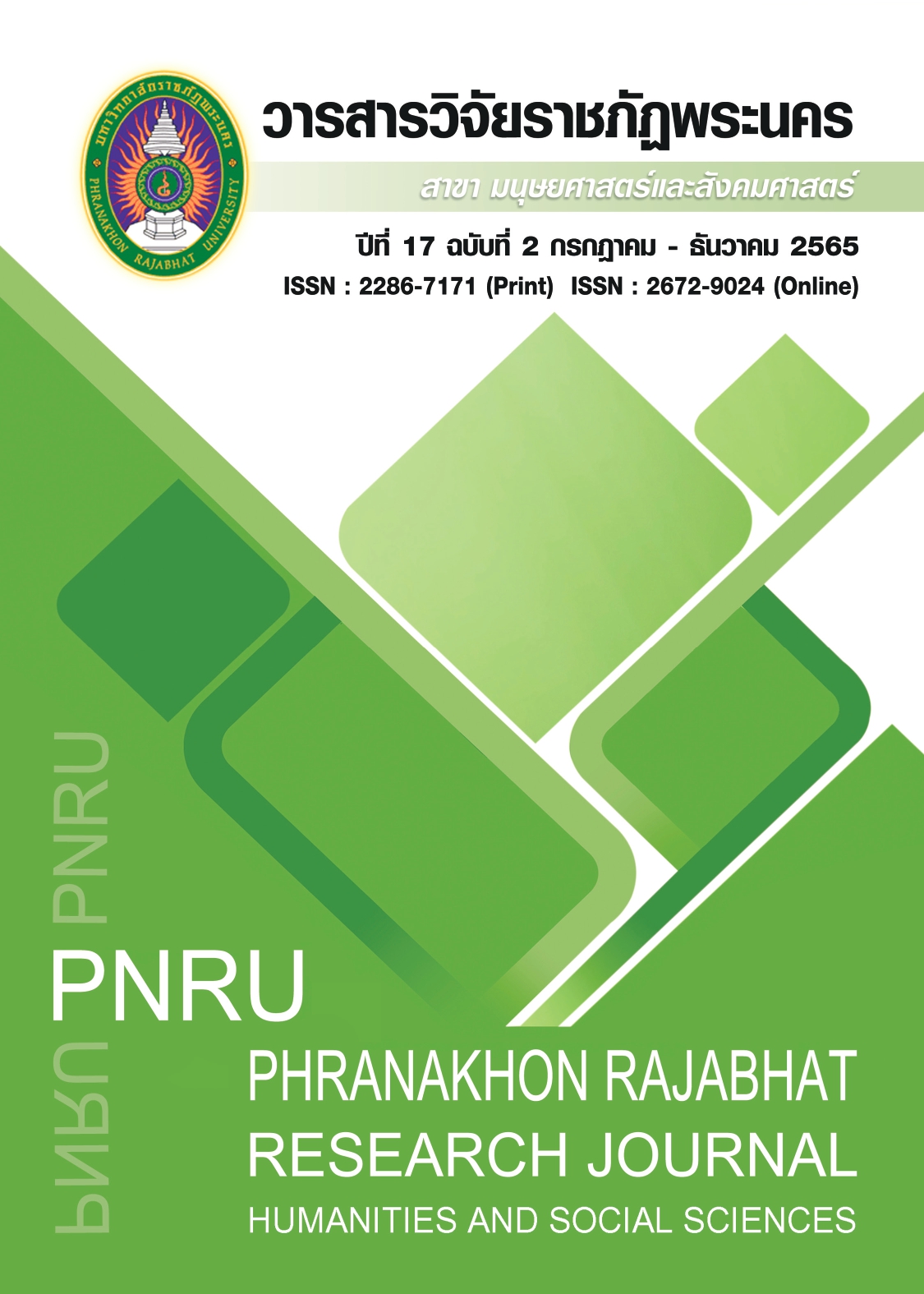A PHENOMENOLOGICAL STUDY OF ENGLISH TEACHERS’ REFLECTION ON THEIR CHALLENGES AND INSTRUCTIONAL MANAGEMENT IN PATTANI PROVINCE IN THAILAND
Main Article Content
Abstract
This phenomenological study aimed to explore and critically report the challenges and limitations which influence the instructional management of five English teachers in Pattani province, the southern border of Thailand. The participants of the study were five English teachers working in a primary school in Pattani province. This qualitative analysis was conducted based on the semi-structured interview. Their personal life experiences, challenges they faced, and instructional management were revealed and then discussed in detail. The findings indicated that there were certain challenges and instructional management developed by the teachers to address the educational situation. Furthermore, the teachers’ needs were obviously in terms of security, effective teaching methodology, as well as material development to practically serve their local circumstances.
Article Details

This work is licensed under a Creative Commons Attribution-NonCommercial-NoDerivatives 4.0 International License.
Each publish articles were copyright by Phranakorn Rajabhat University
Any contents which appeared in each articles in the journal were authors personal opinion. It did not relate to Phranakorn Rajabhat University and other instructors in the university. Each authors would take responsibility on their articles. If there are any mistake, the authors will take responsibility themselves
References
Baker, S. E., & Edwards, R. (2012). How many qualitative interviews is enough. Retrieved from http://eprints.ncrm.ac.uk/2273/
Brooks, M. C. (2014). School principals in Southern Thailand: Exploring trust with community leaders during conflict. Retrieved from http://www.academia.edu/7638125/School_principals_in_Southern_Thailand_Exploring_trust_with_community_leaders_during_conflict# [2014, 19 Jul.]
Chayaratheee, S., & Waugh, R. F. (2006). Teaching English as a Foreign Language to Grade 6 students in Thailand: Cooperative learning versus Thai communicative method. EDU-COM 2006 International Conference. (120-131). Perth Western, Australia: Edith Cowan University.
Crystal, D (2003). English as a Global Language. 2nd edition. Cambridge, UK: Cambridge University Press.
Engvall, A., & Andersson, M. (2014). The dynamics of conflict in southern Thailand. Asian Economic Papers, 13(3), 169-189.
Farrungsang, B. (2008). The research in educational policy of the government in check Southern border provinces (1997-2007). Journal of Education, Prince of Songkla University, Pattani Campus, 19(2), 29-43.
James, A., & Prout, A. (2015). Constructing and reconstructing childhood. England: Routledge.
Jory, P. (1999). Political decentralization and the resurgence of regional identities in Thailand. Australian Journal of Social Issues (Australian Council Of Social Service), 34(4), 337-352.
Graddol, D. (2006). English next: Why global English might mean the end of English as a foreign language. England: British council.
Hilado-Deita, H. C. (2015). History of English language teaching: A glimpse of Thailand scenario. Sripatum University Journal, 12(1), 16-26.
Kirkpatrick, A. (2008). English as the official working language of the Association of Southeast Asian Nations (ASEAN): Features and strategies. English Today, 24(2), 27-34.
Kirtikara, K. (2001). Higher education in Thailand and the national reform roadmap. Invited paper presented at the Thai-US Education Roundtable. Bangkok, January 9, 2001. Retrieved from https://www.kmutt.ac.th/pi/backup/%20%20fileKK/higher%20Edu%20Reform520Roadmap.pdf
Liow, J. C. (2009). Islam, education, and reform in Southern Thailand: Tradition & transformation. Institute of Southeast Asian Studies.
Liow, J. C., & Pathan, D. (2010). Confronting ghosts: Thailand's shapeless southern insurgency (p. 76). Lowy Institute.
Methitham, P. (2014). Survey the landscape of ELT in Thailand: Offering new possibility for change. In The 2014 WEI International academic conference proceedings (26-34). Budapest: The West East Institute.
Ministry of Education. (2008). The Basic Education Core Curriculum B.E. 2551 (A.D.2008). Bangkok: Kurusapa Ladpraob Publishing.
Noom-Ura, S. (2013). English-Teaching Problems in Thailand and Thai Teachers' Professional Development Needs. English Language Teaching, 6(11), 139-147.
Noopong, D. (2002). English teaching problems and the needs for professional development of teachers of English in education extended schools under the jurisdiction of the Office of Primary Education. English Program.
Prasartpornsirichoke, J., & Takahashi, Y. (2013). Assessing inequalities in Thai education (No. 3-2). Hiroshima University, Graduate School for International Development and Cooperation (IDEC).
Premsrirat, S., & Samoh, U. (2012). Planning and implementing Patani Malay in bilingual education in Southern Thailand. Journal of the Southeast Asian Linguistic Society, (5), 85-96.
Tajfel, H. E. (1978). Differentiation between social groups: Studies in the social psychology of intergroup relations. Academic Press.
Watson Todd, R. (2007). The impact of evaluation on Thai ELT. Proceedings of the 12th ESEA international conference: Trends and directions (118-127). Bangkok: KMUTT.


